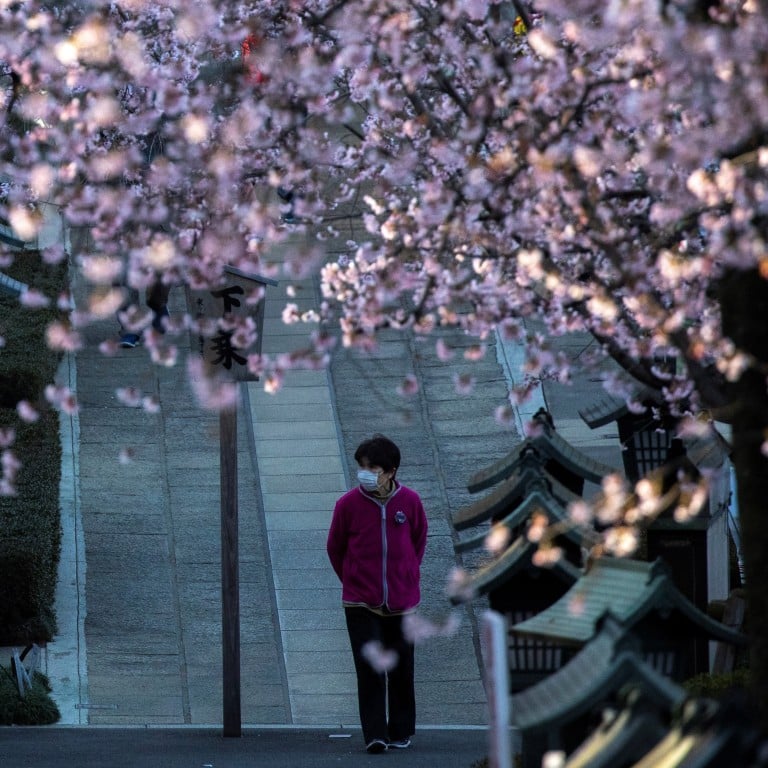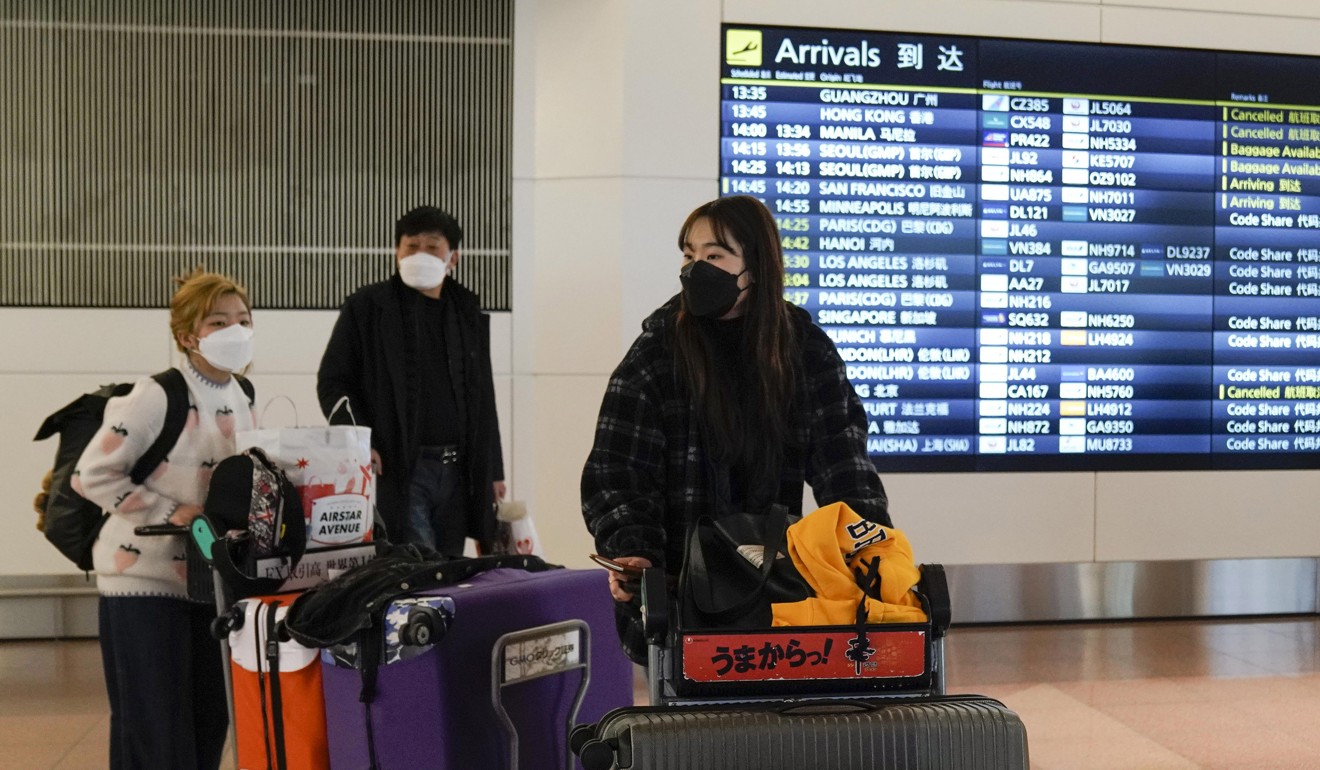
Coronavirus: Japan’s tourism industry in ‘survival mode’ as travellers stay away
- Japanese airlines have cancelled hundreds of flights and shopping districts have emptied as leisure and business travellers postpone travel plans
- With cherry blossom season and the Olympics on the horizon, some are warning the tourism sector is in ‘survival mode’ and on the edge of disaster
On a daily basis, 35,000 foreign nationals entered Japan in February, compared with 85,000 a year ago.
Japan Airlines said it had cancelled 352 domestic flights since March 6 on popular routes linking the key cities of Tokyo, Sapporo, Fukuoka and Osaka, as well as Okinawa Prefecture, while All Nippon Airways (ANA) has scrubbed 206 flights. ANA also warned that “symptoms of decline” were creeping into the company’s international operations and that a decision would soon be made on cancellations of international flights.
JAL spokesman Mark Morimoto said domestic demand “has been hit hard by the outbreak, and we have had to take the decision to shut down a portion of our operations for a while”.
He said that in light of the government recommending that sporting and cultural events be cancelled or postponed, JAL would “watch what happens, see the trends that emerge and make a decision on when to resume these flights at the right time,” he said.
Morimoto said anyone who had booked a seat on a cancelled JAL flight would be offered a full refund or a different flight.
ANA said its domestic flight bookings were down about 40 per cent compared with the same time last year, adding that it was “likely” the airline would have to take the step to cancel even more flights.
Virus-hit Japan begins to feel bite of Chinese tourists’ outbreak absence
Neither ANA nor JAL has reduced ticket prices, though, and neither would say if they would take the step in the future as part of a campaign to win back travellers.
For Japanese who have grown dependent on tourists – especially those from mainland China – for business, it marks a disconcerting trend.
“People on group tours would gather together at noon, and 10 or 20 of them would come in all at once,” said waiter Kiyotake Watanabe, who works at a Chinese restaurant in a Ginza district shopping centre. Those customers evaporated after China in January banned overseas group tours.
Japan’s quarantine rules for tourists slammed as coming ‘too late’

Nomura Securities has warned that the 240 billion yen (US$2.3 billion) in revenues Japan could be expected to gain from Olympics-related tourism is now at risk should the games be delayed, moved or even cancelled.
In the face of virus outbreak, why Japan is desperate to host Olympics
“Virtually everybody is cancelling for the next two months,” Uppal said. “Spring and the cherry blossom season are usually our busiest months of the year, but this year looks like it is going to be a disaster. And now the US appears to have realised the scale of the problem, I expect we will see the cancellations from the US start pretty soon.
“It’s a chaotic situation and everyone in the industry in Japan is affected,” he said. “Right now, we’re just in survival mode.”
The situation has been exacerbated by the medical community’s inability to understand why some people who have been cleared of the virus are subsequently taken ill again, or why the incubation period for the disease is sometimes longer than the two weeks that is considered standard for such viruses.
“Due to unknown factors, it is difficult to make projections” about whether patients can be successfully treated by available antiviral medications, said Dr Douglas P Jeffrey, a US family medicine specialist from Oregon, and a medical adviser to the eMediHealth website.
Like the airlines, JTB and most hotels are not yet offering incentives or reduced rates to attract travellers willing to take the risk to come to Japan, “because the people are just not coming at the moment, will not be coming for some time and there is just no point”, according to Ignatius Cronin, a spokesman for The Imperial Hotel in Tokyo.
“People don’t want to stay at a hotel because they have heard through social media that they need to stay away from crowds and restaurants and they do not want to take a chance,” he said.
Mitsuhiro Sasamatsu, an official with Shizuoka prefecture’s tourism policy division, said that even though the local government has made it easier for tourism-dependent businesses to get loans to weather the coronavirus storm, some hotels in the prefecture, which is home to popular tourist attraction Mt Fuji, were temporarily shutting down anyway.
“For them, it is better cost-wise to shut down completely than to have the business open for few guests,” Sasamatsu said.
Additional reporting by Kyodo

